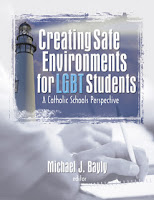“We are not on earth to guard a museum,
but to cultivate a flowering garden of life.”
– Pope John XXIII
but to cultivate a flowering garden of life.”
– Pope John XXIII
The Wild Reed’s series of reflections on religion and spirituality continues with an excerpt from Judy Cannato's 2010 book, Field of Compassion: How the New Cosmology is Transforming Spiritual Life.
Cannato, following in the tradition of Catholic visionaries Teilhard de Chardin and Thomas Berry, invites us to embrace a way of understanding religion and the spiritual path that is informed and illumined by the findings of science, especially those that relate to the evolving nature of the universe.
Evolutionary cosmologist and author Brian Swimme says that Cannato "synthesizes the brilliant insights of our era's most significant scientists and spiritual teachers."
In the excerpt below, Cannoto outlines what she sees as the twofold purpose of Field of Compassion.
First, I want to invite you, my fellow human being, to take up the challenge that is ours in this particular moment in human history, the invitation to transformation that will change the way our species lives. Second, I would like to suggest ways that we walk through this new terrain together. . . . Together we will learn where and how to go.
We must engage the new vision that is emerging within and among us with urgency. We haven't much time to turn things around. And turnaround will come not from an extraordinary rescue by an extraordinary deity. As we may have heard before, we are the ones we are waiting for. This is not to say that the Holy One is not present. On the contrary, it is because the Holy One is present that we are invited and challenged to respond. Karl Rahner said that we are "pressured" from within to evolve. That pressure is what we have always called the Holy Spirit. And the Spirit is creatively at work in this moment, urging us to evolve, to become a new kind of human being such as the world has rarely seen before. But what has been rare must now become commonplace.
Jesus invited his disciples to do the work that he empowered them to do, and more (Jn 14:12). What did he empower them to do? To love. To be communion for one another. To empower one another. To become free. To live with great passion and compassion. Jesus' empowerment of the disciples was not a supernatural distribution of gifts handed out in an exclusive way. Their empowerment came as they learned how to attend to the divine presence from within, the Spirit, which allowed them to emerge as women and men who came to be more than they ever dreamed they could be. And what is "the more" that Jesus suggested the disciples would do? Perhaps nothing more than this – to live so empowered with love that compassion and all its accoutrements become simply the way we all live.
In one sense, the "kingdom of God," to use Jesus' term, was not meant to be something extraordinary, and it certainly was not intended to be exclusive. It was intended to be ordinary, the norm, the usual way relationships and community are done. Each of us living out our best self – perhaps unusual, but certainly not anything out of the realm of possibility – was Jesus' dream. His vision, compelled by the Spirit within him, was what motivated his every word and action. He gave his life, not only his dying, but his living, to that vision. And in this moment of time it becomes clear that all that he lived for and hoped for and died for – the whole of the gospel – is what will guide us through the days ahead.
I also want to be clear that while I write from a Catholic Christian perspective, I do so in a way that includes all of us. Our great religious traditions have at their heart the conviction that we must live in peace and love, and that we cannot do so without the aid of the transcendent and sacred dimension of reality. So while I write from within my own tradition, I do so with the awareness that the pressure of the Spirit from within is a universal phenomenon, and no matter what images or languages we use to communicate our experience of the Spirit, each and every one of us is invited to be, each of us already is, an essential component of one Earth community – a Field of Compassion that embraces all.
– Judy Cannato
Excerpted from Field of Compassion: How the New Cosmology is
Transforming Spiritual Life
Sorin Books
pp. ix-xi
Excerpted from Field of Compassion: How the New Cosmology is
Transforming Spiritual Life
Sorin Books
pp. ix-xi
Recommended Off-site Links:
Judy Cannato: A Remembrance – Sharon Abercrombie (National Catholic Reporter, May 31, 2011).
Field of Compassion: A Review – Frederic and Mary Ann Brussat (Spirituality & Practice, 2010).
See also the previous Wild Reed posts:
• In the Garden of Spirituality – Richard Rohr
• Michael Morwood on the Divine Presence (Part I)
• Michael Morwood on the Divine Presence (Part II)
• Michael Morwood on the Divine Presence (Part III)
• Prayer and the Experience of God in an Ever-Unfolding Universe
• In the Garden of Spirituality – Ilia Delio
• In the Garden of Spirituality – Beatrice Bruteau
Image: Michael J. Bayly (Goulburn, March 18, 2015).























No comments:
Post a Comment